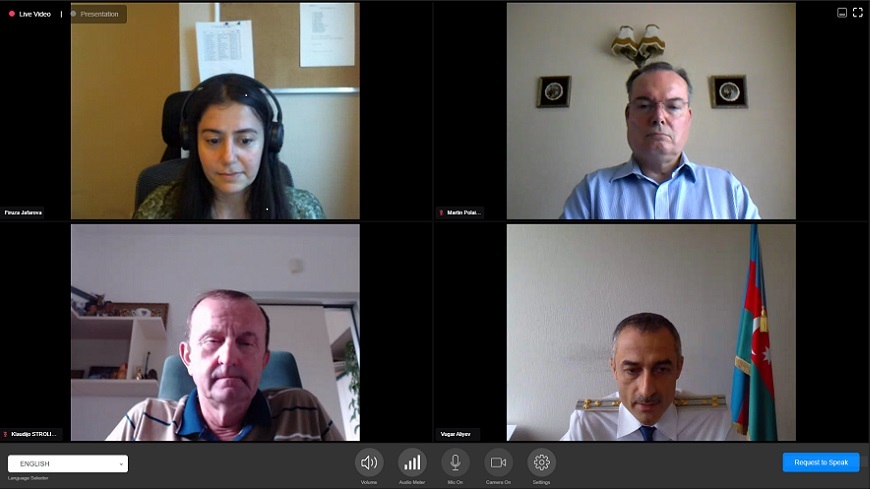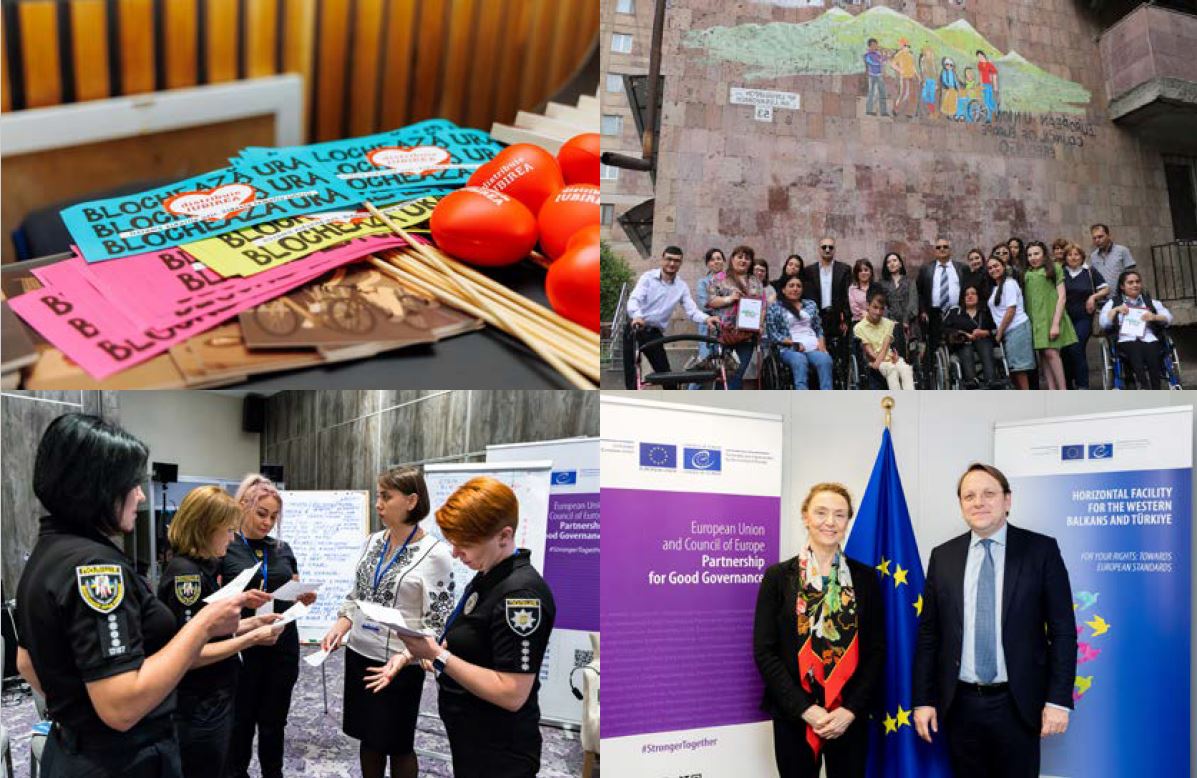26 representatives of law enforcement, judiciary, regulatory and other relevant government institutions came together for a training event on the “Application of the Warsaw Convention on Laundering, Search, Seizure and Confiscation of the Proceeds from Crime and the Financing of Terrorism” which took place via video conferencing on 24 July 2020. The training brought together investigators, prosecutors, judges and other representatives of the Anti-Corruption General Directorate, General Prosecutor’s Office, Baku, Shaki, Lankaran and Ganja Courts on High Crimes, Ministry of Justice, Ministry of Internal Affairs, Financial Monitoring Service, State Tax Service under the Ministry of Economy, State Security Service and State Customs Committee, with the objective to strengthen their practical understanding on the proper interpretation and implementation of the Warsaw Convention provisions.
The training introduced a productive combination of a strong theoretical knowledge base complemented with practical examples, by addressing key themes such as investigative powers and techniques, financial investigations, evaluating direct and indirect evidence, confiscation, asset return and sharing, mutual legal assistance (MLA), the Financial Intelligence Unit’s power to postpone suspicious transactions, international cooperation with regard to bank accounts and transactions. Participants from law enforcement and judiciary highlighted several areas that brought new insights in relation to a new concept on reversal of burden of proof, the importance of referencing specific provisions of the Warsaw Convention while drafting MLA requests, collection of evidences, among other. The training will enable the representatives of the relevant institutions to integrate and practice the new insights in the national context, with the aim to support the investigation, prosecution and conviction of serious money laundering and terrorist financing crimes and the implementation of effective confiscation measures.
This activity was organised within the framework of the EU/CoE Partnership for Good Governance II Project on “Strengthening anti-money laundering and asset recovery in Azerbaijan” (PGG II-AZ) which is funded jointly by the European Union and the Council of Europe and implemented by the Council of Europe.






